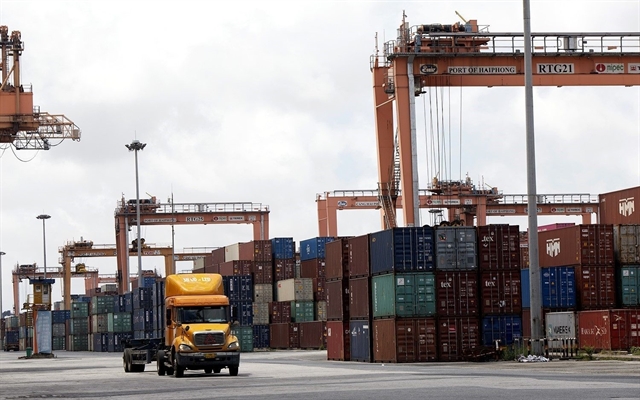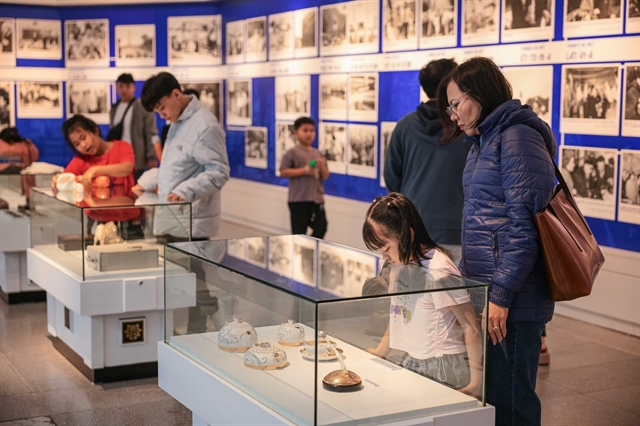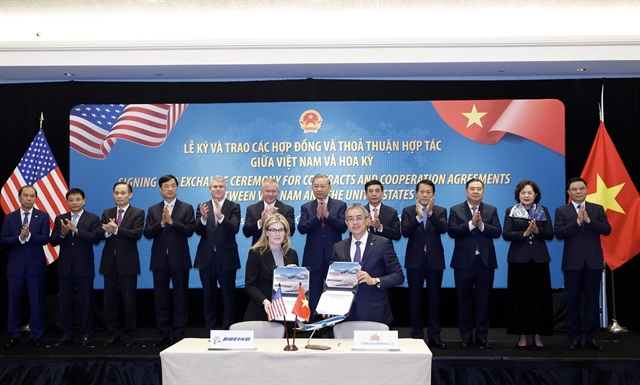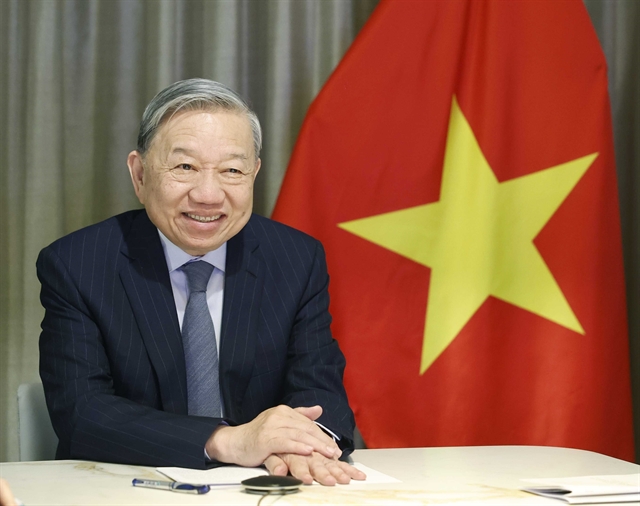 Politics & Law
Politics & Law

Prime Minister Nguyễn Xuân Phúc lauded bomb and mine recovery efforts over the past several years while chairing a meeting of the National Steering Committee on the Settlement of Post-War Unexploded Ordnance and Toxic Chemical Consequences (Steering Committee 701) in Hà Nội on Tuesday.
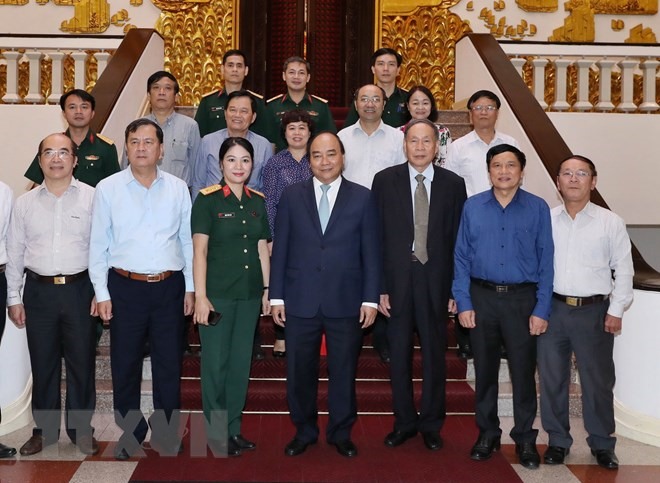 |
| Prime Minister Nguyễn Xuân Phúc meets with the National Steering Committee on the Settlement of Post-War Unexploded Ordnance and Toxic Chemical Consequences (Steering Committee 701) in Hà Nội on Tuesday.— VNA/VNS Photo Thống Nhất |
HÀ NỘI — Prime Minister Nguyễn Xuân Phúc lauded bomb and mine recovery efforts over the past several years while chairing a meeting of the National Steering Committee on the Settlement of Post-War Unexploded Ordnance and Toxic Chemical Consequences (Steering Committee 701) in Hà Nội on Tuesday.
It was the first meeting since the committee made its debut in April 2018.
In his speech, the PM said ministries, agencies, localities and socio-political organisations had devised their own action plans to deal with bombs, mines and toxic chemicals, facilitated international co-operation, scientific research and technological development in the field, as well as provided support for victims.
Describing bomb and mine recovery as an urgent task, the leader said the committee needed to fix existing shortcomings to protect the environment and people’s health in the service of socio-economic development, towards mitigating public exposure to dioxin.
He said that a concrete plan is needed to devise a map of dioxin, bomb and mine contaminated hotspots in Việt Nam, adding that the committee should consider amending policies on State allowances for those who joined resistance wars and became exposed to dioxin and chemical toxics and their children, in order to offer them better medical care.
Ministries, agencies and localities were urged to rally domestic and foreign resources for the effort.
The PM said the implementation of a Việt Nam–Hungary project on overcoming the aftermath of bombs and mines in Hà Giang, Lào Cai, Cao Bằng, Quảng Nam and Quảng Trị provinces, which uses the State budget and Hungary’s official development assistance, was necessary.
He assigned the committee to collect feedback at the event to refine the report, especially those aspects regarding social and health care issues for Agent Orange/dioxin victims, international and technical cooperation, environmental issues and projects jointly conducted by ministries and agencies.
Last year, the standing board of the committee worked with ministries and agencies to build its operating regulations and offered advice to Party and State leaders about adding the settlement of post-war bombs and mines into joint statements with the US, Japan, Australia and Israel.
During the first stage of a project on outlining maps of areas contaminated with bombs, mines and explosives, up to 9,116 areas were found, accounting for 81.87 per cent of the total. Heavily affected provinces include Hải Dương, Quảng Bình and Quảng Trị.
Over 6.1 million hectares of land are contaminated with bombs and mines while about 30,000–50,000ha are subject to bomb and mine clearance.
The Ministry of National Defence also partnered with the US Agency for International Development to deal with dioxin at Đà Nẵng international airport. The project has been basically completed with 160,000sq.m of treated land meeting technical standards on the environment.
The Ministry of Labour, Invalids and Social Affairs piloted a model to improve the livelihoods of victims hurt by bombs and mines in several localities.
Meeting with VAVA
The same day, Phúc spoke highly of the Việt Nam Association of Victims of Agent Orange/Dioxin (VAVA)’s efforts in recent years to protect the rights of victims and raise funds.
During a meeting with a VAVA delegation led by its president, Sen. Lt. Gen. Nguyễn Văn Rinh, in Hà Nội on the occasion of the 57th anniversary of the Day for AO/Dioxin Victims (August 10, 1961), the Government leader also noted that the association has made active efforts in demanding justice for those affected by AO/Dioxin.
The efforts have drawn public attention both at home and overseas, calling on the US Government to recognise its responsibility and take concrete acts, he stressed, adding that VAVA had also advised Party and Governmental leaders on formulating special policies for victims and raising public awareness of the effects of the toxic chemical on human health.
The PM said he wanted local Party committees and authorities to work alongside businesses to provide aid for the victims and help them integrate into society. He also voiced hope that VAVA would continue their good work to overcome difficulties and fulfill their tasks.
Rinh, for his part, thanked the Party, State and Government for the support given to AO/Dioxin victims.
It was estimated that about 4.8 million Vietnamese people were exposed to AO/Dioxin and there have been fourth-generation victims, many of whom have to struggle every day to make ends meet. Some 350,000 victims and their children are receiving financial support monthly.
As of March 2018, the association had raised more than VNĐ1.7 trillion (US$73.1 million) to build 25 support centres and houses for them and award their children with scholarships. — VNS

